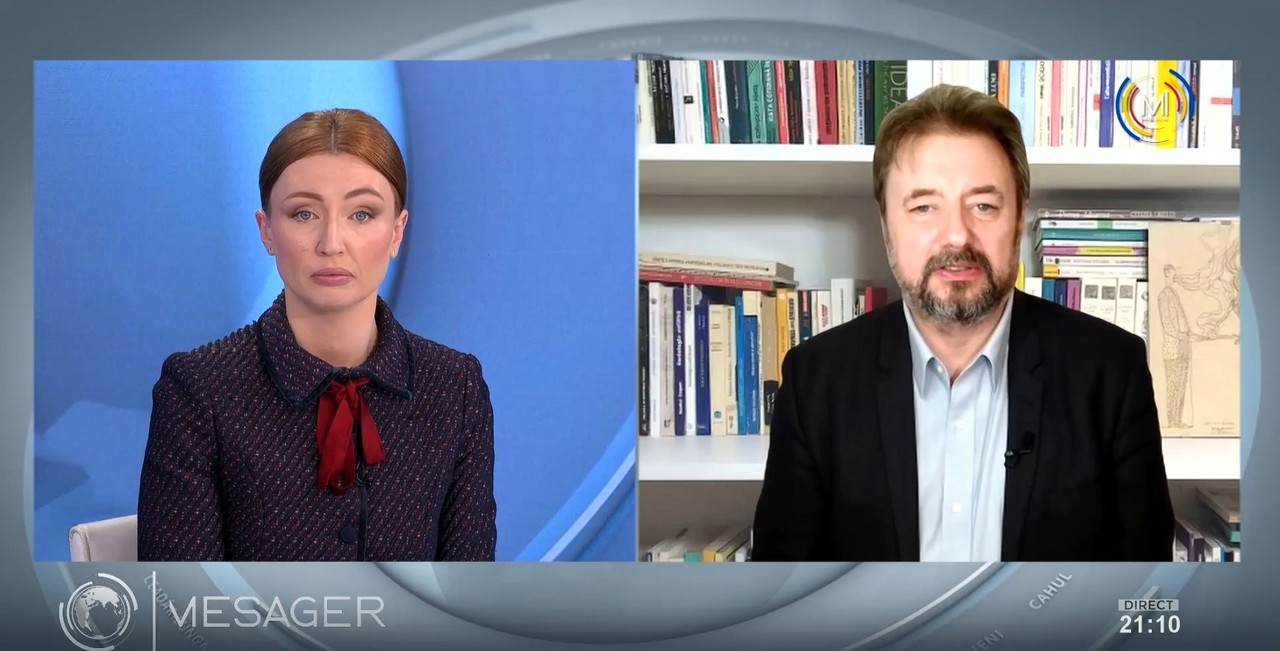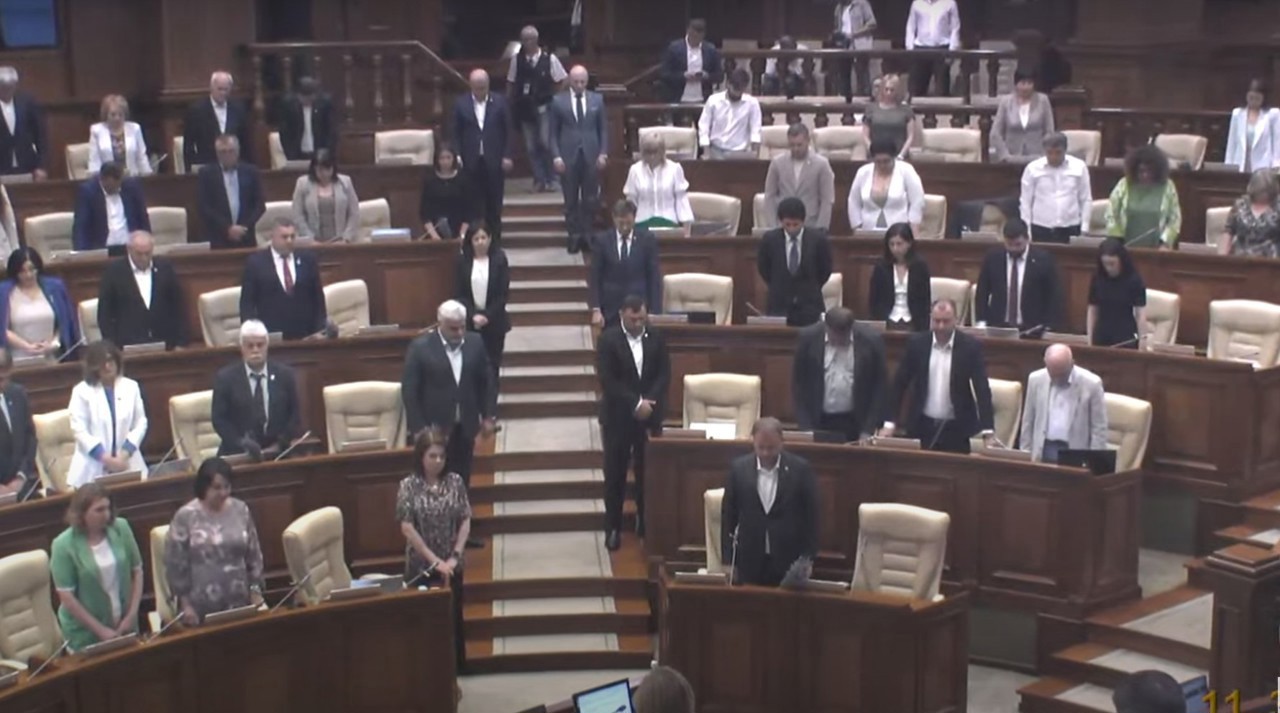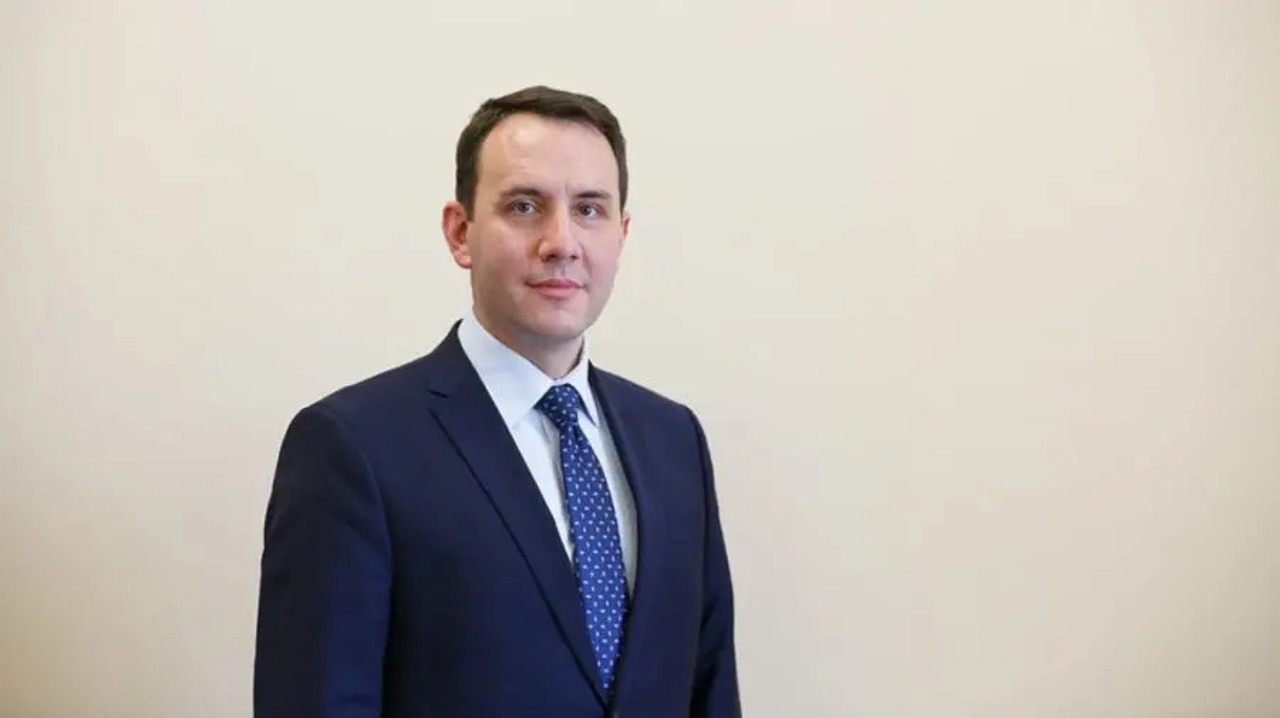Romanian political analyst: The extreme right aims to stage a coup. Whose interest does this serve?
“We can expect those who are trying to create unrest in Romanian political life to be successful. But whose interests would it benefit if such events unfolded in Chișinău or Bucharest? It would be in Russia's interest,” warned Cristian Pîrvulescu, political analyst, in an interview with Moldova 1 TV. He said that “the extreme right aims to stage a coup.” Some experts featured on the show “IN CONTEXT” anticipate that we may see significant political changes in Romania.

President Iohannis has resigned after facing extraordinary pressure. This situation can be seen as a victory for the extreme right, which is difficult to comprehend. Although it may seem like there is a temporary de-escalation in the political climate, the reality is that we are entering a serious institutional crisis that complicates matters further. Nevertheless, this development will not alter the aims of the extreme right, who continue to seek to undermine a definitive decision: forcing Romania to rerun the December 8 election, which was annulled by the Constitutional Court under the influence of foreign powers.
Regarding relations with the Republic of Moldova, the expert is confident that "the same policy will continue." Those who called for Iohannis's resignation are not known for having good relations with the Republic of Moldova; in fact, they also have strained ties with Ukraine.
EU security expert Laurențiu Pleșca told “IN CONTEXT” that while “a political crisis was avoided with the president's resignation, the crisis began with the annulment of the presidential election results.” He believes this decision will likely lead to further changes in the political situation, potentially introducing new candidates into the presidential race.
Sociology expert Tatiana Cojocari also shared her insights with “IN CONTEXT,” indicating that we should expect “tectonic movements in Romanian politics,” and she emphasized that “political decision-makers must rethink their relationship with society.” Currently, only 33% of the population believes that Romanian state institutions and the government operate in the interest of citizens. This dissatisfaction is largely due to President Iohannis's limited presence in public discourse, communication, and engagement, even though he has significant responsibilities in foreign policy. Notably, 88% of Romanians strongly support the country’s membership in the European Union and NATO. This sentiment sends a powerful message as we prepare for the upcoming parliamentary elections, highlighting the need to address extremism and ultra-nationalism, which could serve as lessons for the Republic of Moldova.
Klaus Iohannis announced that he would resign as President of Romania on February 12. The Parliament in Bucharest was scheduled to hold a plenary debate on Tuesday regarding the opposition's request for Iohannis's suspension. His second term was set to expire on December 21, 2024. However, the Constitutional Court ruled to cancel the presidential elections and allowed Iohannis to remain in office until a new president is installed. The presidential elections are now expected to take place in May 2025, following the cancellation of the initial 2024 election by the Constitutional Court. This decision resulted from evidence of artificial intelligence use and illegal financing in the electoral campaign.





